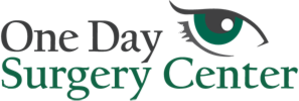Cataract Prevention: What You Need to Know

About one in every six Americans over 40 has a developing cataract, but you can reduce your risk of cataracts by making some healthy lifestyle choices:
1. Protect your eyes from the sun. Ultraviolet radiation from the sun exposes your eyes to harmful free radicals that can damage your lenses. Protect your eyes and skin by applying sunscreen with a minimum SPF of 30 and wearing sunglasses that offer 100 percent UVA and UVB protection. You can also wear a wide-brimmed hat for additional protection.
2. Eat a diet that is rich in fruits, vegetables and whole grains. Studies show that antioxidants like vitamin C, lutein and zeaxanthin have healing properties and combat the effects of free radical damage. Fill your plate with foods like leafy greens, berries, tomatoes, citrus and yellow peppers to protect your vision. Omega-3 fatty acids may also lower your risk for cataracts, so boost your intake of fatty fish like salmon and sardines, as well as walnuts, chia seeds, eggs and cauliflower.
3. Say no to smoking. One cigarette contains 600 ingredients that produce over 7,000 chemicals when burned (American Lung Association). Every time you take a puff of a cigarette, you are breathing ammonia, acetone, carbon monoxide, lead and tar. These toxins cause oxidative stress to your eyes and make them more susceptible to cataracts.
4. Save alcohol for special occasions. Studies show that most Americans consume more beer, wine and cocktails than they would like to admit. Alcohol can damage the structure and function of eye cells and increase your risk for cataracts, so show moderation when you drink. There are many health risks associated with alcohol, so talk to your doctor for more information about how alcohol affects the body.
5. Exercise regularly. Physical activity increases levels of high density lipoproteins (HDL) commonly known as “good cholesterol.” HDLs have anti-inflammatory and anti-oxidative effects, which can help lower your risk for cataract development.
6. See your eye doctor regularly. Even if you do not have vision problems, visit your ophthalmologist every year for a full eye exam. A comprehensive eye exam with dilation allows your doctor to assess your overall eye health and look for indications of eye disease like cataracts, glaucoma and macular degeneration.
By adjusting your habits and making a few lifestyle changes, you could reduce your risk for cataracts and improve your health. Make an appointment with an ophthalmologist today.
